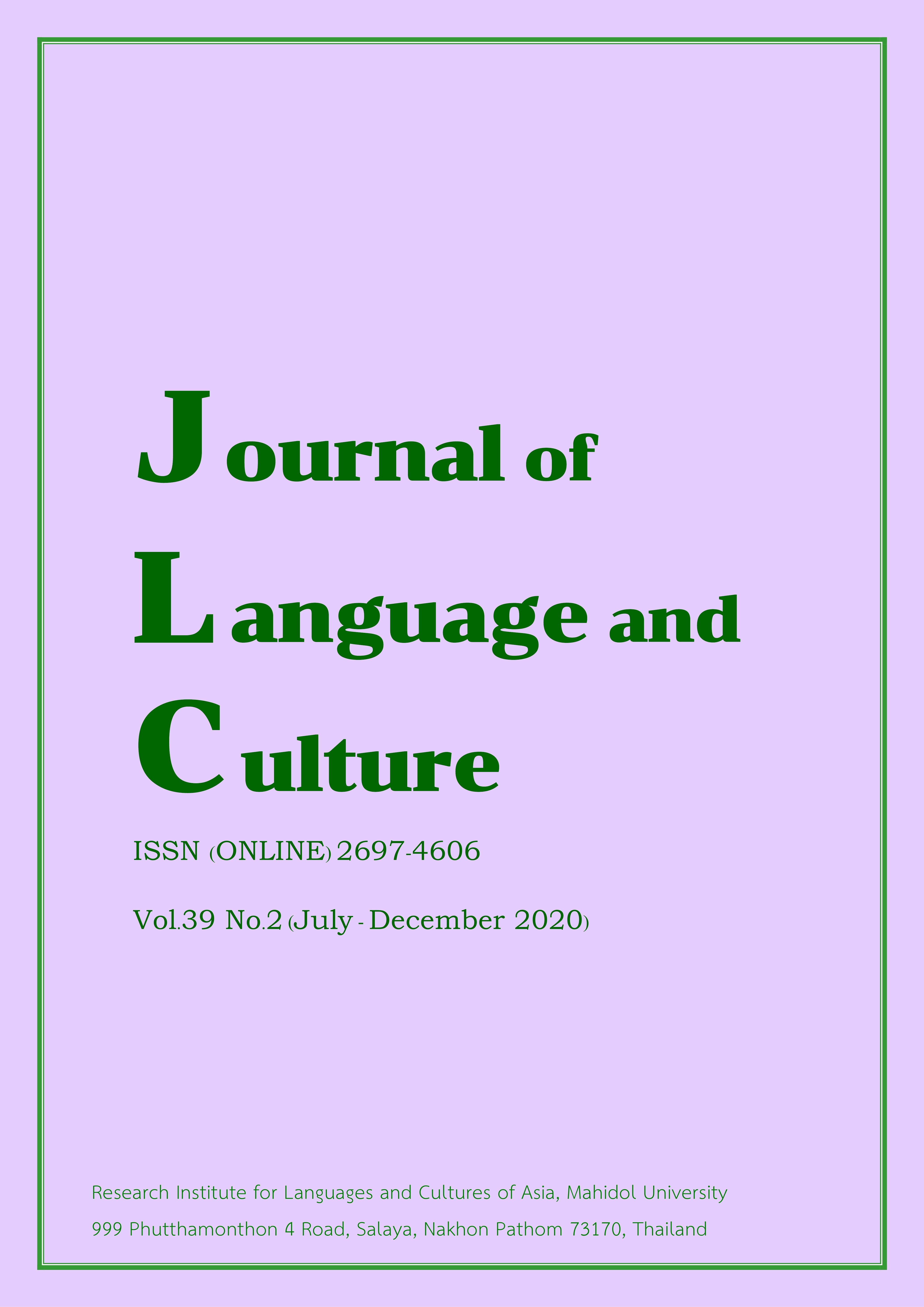The Thai language as lingua franca for trading: The intercultural context of Cambodian and Myanmar neighbor laborers in Thailand
Main Article Content
Abstract
This article focuses on the issue of using language as a tool in the context of communication among laborers from neighboring countries and Thais. Its aim is to analyze the phenomena and to investigate these neighbor laborers’ ability to do trade using the Thai language in terms of word use, sentence, and meaning. The study also sought the mental factors reflected in the use of language with variation and experience of mother-tongue and environment. The theoretical approach to carrying out this research is based on ‘sociolinguistics’, which addresses the language use in real situations with regard to social practices. The findings will deepen our understanding of phenomenon of intercultural interactions. In this work, the informants were laborers from Myanmar and Cambodia, 20 people in total aged 21-30, comprising five males and five females from each country. The researcher as observer took notes on the verbal interactions between the Cambodian and Myanmar fruit sellers and their Thai customers in an arcade of market stalls. The findings are, in concordance with the purposes, as follows: they used single words, and groups of words – strongly accented – more than complete sentences. As for conveying meaning based on linguistic form used, they were able to communicate conveniently with single words, and relatively easily with groups of words, but they had difficulty conveying full meaning when using sentences. The effects of speaking Thai explicated the factors of their native languages affected the second one; that is, the Thai language. However, the environment around them might develop the ability of their Thai-speaking communication for the sake of struggling. Finally, they are likely to make their potentials better, and establish Thai as lingua franca for neighbor laborers.
Article Details
The articles featured in the Journal of Language and Culture (JLC) constitute academic works representing the viewpoints of the respective author(s). It is crucial to note that these opinions do not necessarily reflect those of the Editorial Board.
All articles published in JLC are released under the Creative Commons Attribution 4.0 International License (CC BY 4.0). This license grants permission for unrestricted use, distribution, and reproduction in any medium, provided proper credit is given to the original author(s) and the source.


